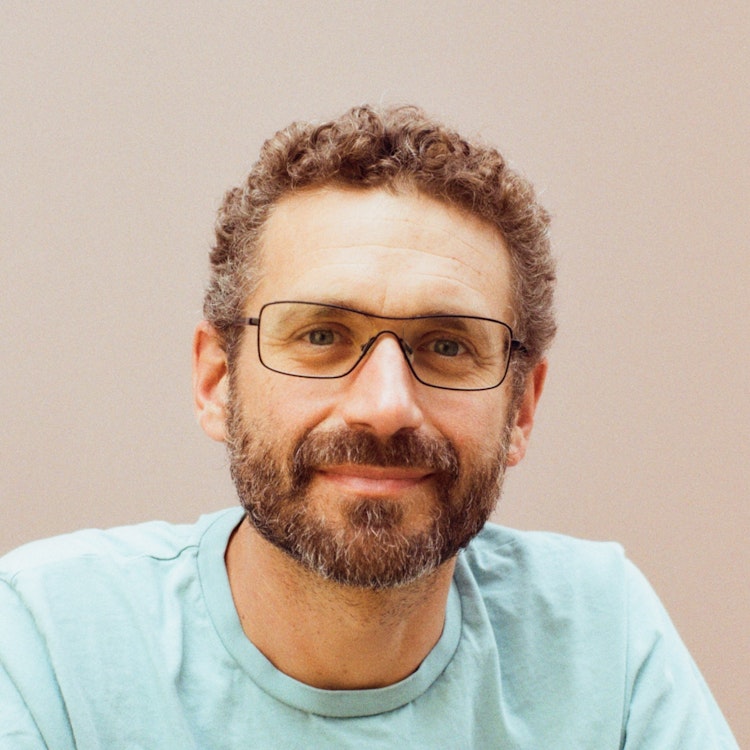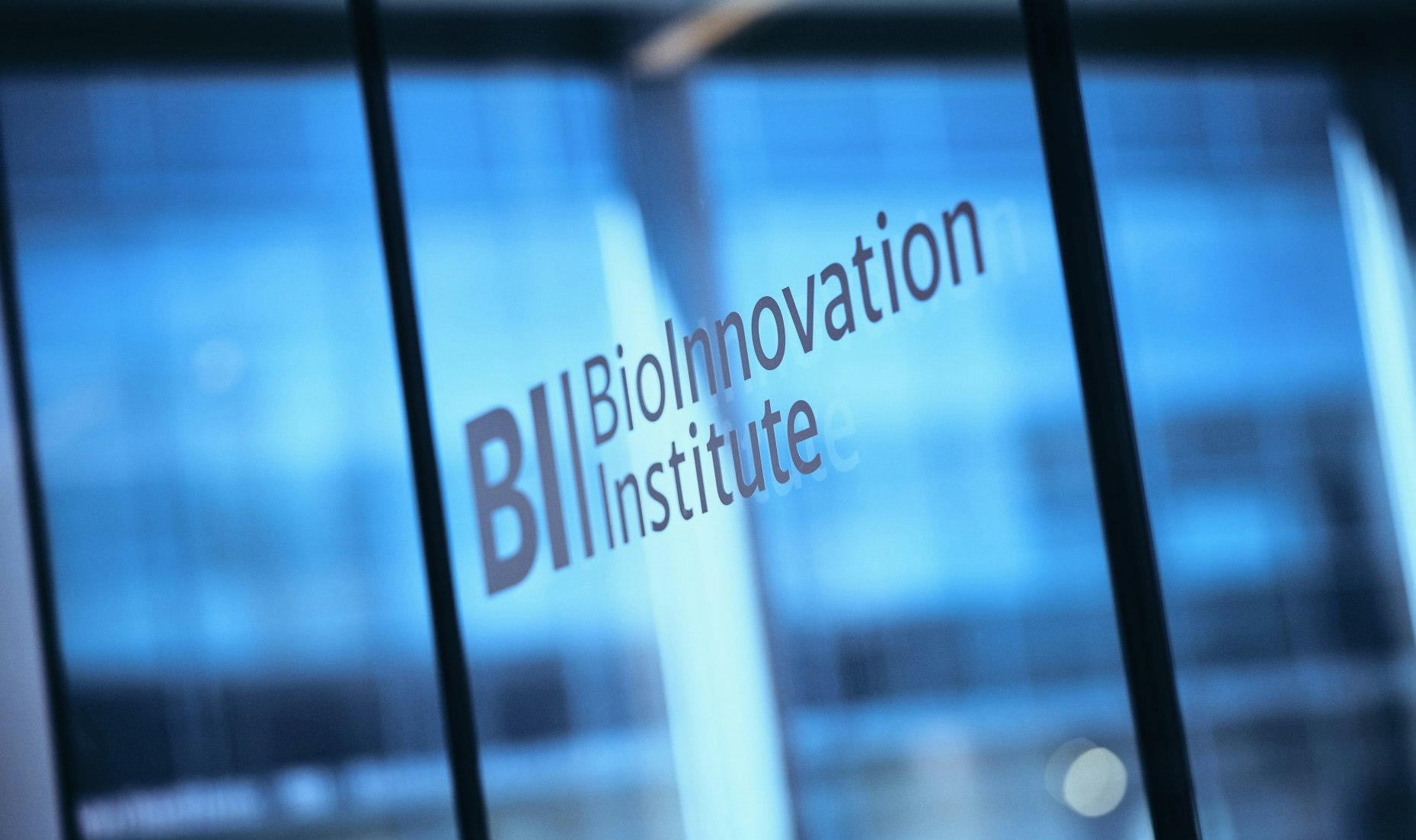Governments aren’t the first organisations most people think of when the word ‘innovation’ is bandied around.
But, just occasionally, they do try out something a little bit left field.
The UK’s Advanced Research and Invention Agency — ARIA — is a prime example of that. Launched in 2023, the research funding agency aims to unlock scientific and technological breakthroughs which could generate big social and economic returns, which might, without its intervention, never get off the ground.
Its CEO, Ilan Gur, joined Startup Europe — the Sifted Podcast this month to explain how the magic works — and how entrepreneurs can get involved with its programmes, ranging from neurotechnologies to robot dexterity and safeguarded AI to scaling compute.
Before joining ARIA, Gur was a programme director at ARPA-E, the US government’s Advanced Research Projects Agency, which was established to develop new cutting-edge technologies to generate, store and use energy. He’s been a founder — starting two companies in Silicon Valley — and he’s also launched two entrepreneurship programmes.
Read some lightly edited highlights from our conversation below — or listen to the full episode here.
How does ARIA work in practice? How do you find amazing people and bring them together in such a way that is hopefully conducive to the next big breakthrough?
ARIA is an R&D funding agency set up by the UK government to really empower scientists and engineers to push the edge of the possible and unlock breakthroughs that can benefit everyone in society.
Our starting point was not to say here are a handful of research areas that we should fund. Our starting point was to go and recruit a handful of people — we call them programme directors — who are deep-trained scientists and technologists, engineers from different types of backgrounds, institutions, etc.
And we basically said, if you're someone who sees things differently and could imagine a different future, spend a few years at ARIA. Your job will essentially be to create a thesis of where our support, as an R&D funding agency, could help catalyse that future: by supporting research and development that most people don't think is important right now, but you think could be important or hugely consequential; or research that people feel is far too speculative and not possible.
What does an ARIA programme director actually do?
What we said to our programme directors when they came in was, ‘Don't start by figuring out exactly what or who you're going to fund. Start by making sure that we're oriented towards a landscape where we think there is the potential for massively important breakthroughs that wouldn't otherwise happen.’
We asked them to define what we call opportunity spaces, and said there are three criteria that are important:
- Find an area that is highly consequential to the future of the UK and the world;
- But that, relative to that value or potential impact, there's nowhere near enough R&D funding or activity for it.
- Let's also try and understand why this area might be ripe for transformation, why our support could bring in new talent, new ideas that shift the trajectory of progress and hopefully create new communities and critical mass in directions that no one thought, that no one expected.
Any of the funding we provide to research projects is going to be highly speculative. There's a fair chance that it may not work. It's going to be bold, it's going to be ambitious.
What that means is you start doing the research, and you uncover some learning, and then, based on that learning, you kind of update your priors and you can adapt. The only way you get something like that wrong is if you take that first step in the wrong direction or an unproductive direction.
What’s a good example of an opportunity space that’s already underway?
One of our programme directors, Angie [Burnett], is a plant physiologist. She has spent part of her career thinking deeply about what happens as the climate changes, and what are the implications of that globally in terms of food security. When she came into ARIA, Angie's real insight was that basically you can think about plants as a technology platform.
Think about a plant as a device, as a piece of hardware. It has certain functions, and we have the ability to update the hardware and functionality of plants; just go to your grocery store and look at the different varieties that you can pick. What's interesting about this technology platform, as opposed to something like an iPhone, is that a lot of the functionalities of plants are exactly the ones that we need to think about to address things like climate change and food security. For example, they're one of the few technology platforms out there that is already operating at scale.
This is all very exciting… but it's a really bad technology platform in other ways because we get updates every couple of decades.
But what if we thought differently about that? What if we thought that this could be one of the most important and consequential platforms, a natural technology platform for addressing some of the biggest problems in society? You'd argue we're not paying anywhere near enough attention or putting anywhere near enough resources towards making that happen.
There are a lot of ideas around how variety changes or breeding or genetic engineering plants could happen not in 20 years, but in 18 months. Angie talks about plants where the roots grow a little thicker and absorb more CO2, or plants where the fruit of the plant is more nutritious or needs less fertiliser... But you could also imagine the food of the plant being a therapeutic medicine, so delivery of new medicines in different parts of the world could become much easier. It's a really powerful vision.
We're not just saying ‘we want very specific technologies to solve this very specific problem in agriculture’, nor is it kind of just a bottoms up: ‘let's fund things in plants’. From a scientific perspective, it's kind of somewhere in between.
We’re getting a lot of excitement, both from people who are driven by the problem and from people who are driven by the science.
Once an opportunity space is defined, what happens next?
For Angie’s opportunity space, we're going to be opening a call for proposals for seed funding. We say, ‘Give us a three-pager on how science and technology can lead to a breakthrough in this space.’ Within two to three weeks, we'll tell you whether we can give you up to £500k to go pull on that thread, activate your obsession and give you a chance to see whether there's something there. That's open not just to academic researchers, but it could be startups, it could be founders who have not yet started a company, it could be someone sitting in a big corporation. We just don't care. We just want the best people and ideas who can advance that space.
What kind of time frames are you working towards?
ARIA was created out of an Act of Parliament. Its mandate is not to just fund a field of research and build up the base of capacity, nor is it to address some specific problem that the government wants to solve in the next few years. It's something else. It's more speculative. It's more about unlocking step-change breakthroughs. And so there are a couple things that are codified into our statute.
One is that we should be focused on real transformative impact, and to do so, we should be comfortable funding research which has a high probability of failing to meet its objectives. The other important one is to transform the future of the UK at the intersection of quality of life and economic growth.
There’s also a recognition that these things don't happen overnight. The statute actually says that ARIA should have an initial 10-year runway before it's really examined in terms of its effectiveness. Implicit in that is that we need to build a really robust portfolio. These are all essentially speculative bets; we're buying for the UK taxpayer and for society a lot of out-of-the-money options on science and technology transformations, with the hope that some of them actually pan out and end up being really big wins.
Our initial budget for ARIA for the first few years was £800m. Some people said, well, that's nowhere near enough money to do something like this. If you look at an agency like DARPA in the US, it has multiple billion dollars a year.
Given what you know about the UK’s research environment, the industries we have here, and the talent we have here… where does the UK stand a good chance of becoming a world leader in 10 or 20 years time?
One of our programme directors, Jacques [Carolan], is a quantum physicist. He used to build quantum computers, and a couple of years ago, he decided that the most important thing to be working on with physics is neuroscience.
The broad range of neurological disorders that society faces are not disorders of a specific part of the brain, but rather they are circuit level disorders — with different regions of the brain at work, different cell types operating and different time scales. But so far in neurotechnology, we've done a lot of work to figure out how to interrogate and interface with very specific regions of the brain — and not at that circuit level.
If you look at the broad range of neurological disorders, everything from mood disorders and depression to Parkinson's and Alzheimer's… the social burden and cost of that to the UK is enormous. It's probably three times as much as cardiovascular diseases, which is considered the biggest cost in healthcare. So if we believe that it might be possible to interface with the circuit-level brain function and, by doing so, create technologies that would allow us to intervene and provide therapies to the broad range of neurological disorders, the expected value of that is just off the charts. You'd argue that something like a third of all pharma could potentially be spent trying to address that.
One of the things that has been very powerful in the discovery process around Jacques’ opportunity space in circuit-level neurotechnology is that a) in the UK the train has actually not even close to left the station in terms of neurotechnology as a potential industry; and b) the UK has enormous strengths against all of the different elements that you would need — neuroscientists and clinicians and surgeons and material sciences and device physicists — and there's a chance to activate those communities in a new way.
I think in 10 to 20 years, not only will we see the neurotechnology conversation be much more front and centre than it is now, but our hope from ARIA is that the UK will be a really central part of that conversation.
Final question: You’ve set up a bunch of companies, worked in all these different organisations and been around endless innovators and entrepreneurs… what’s one bit of advice you would give your younger self, or someone early on that entrepreneurial journey, about this world of coming up with new ideas and turning them into reality?
If you have a vision in your head that you can't shake, and everyone tells you: ‘That’s absurd, that's not possible,’ but you really feel conviction about it, or at least you're just obsessed with it and it keeps coming back… Pull on that thread and actually work towards that vision. There's only one thing that we've learned in trying to develop a different and better future, which is if you march towards a vision and you're committed to it, new paths will emerge that can get you there that you never expected, and it's much easier to over-index on the downside scenarios and lose sight of the upside scenarios. My advice would be: focus on the upside.




